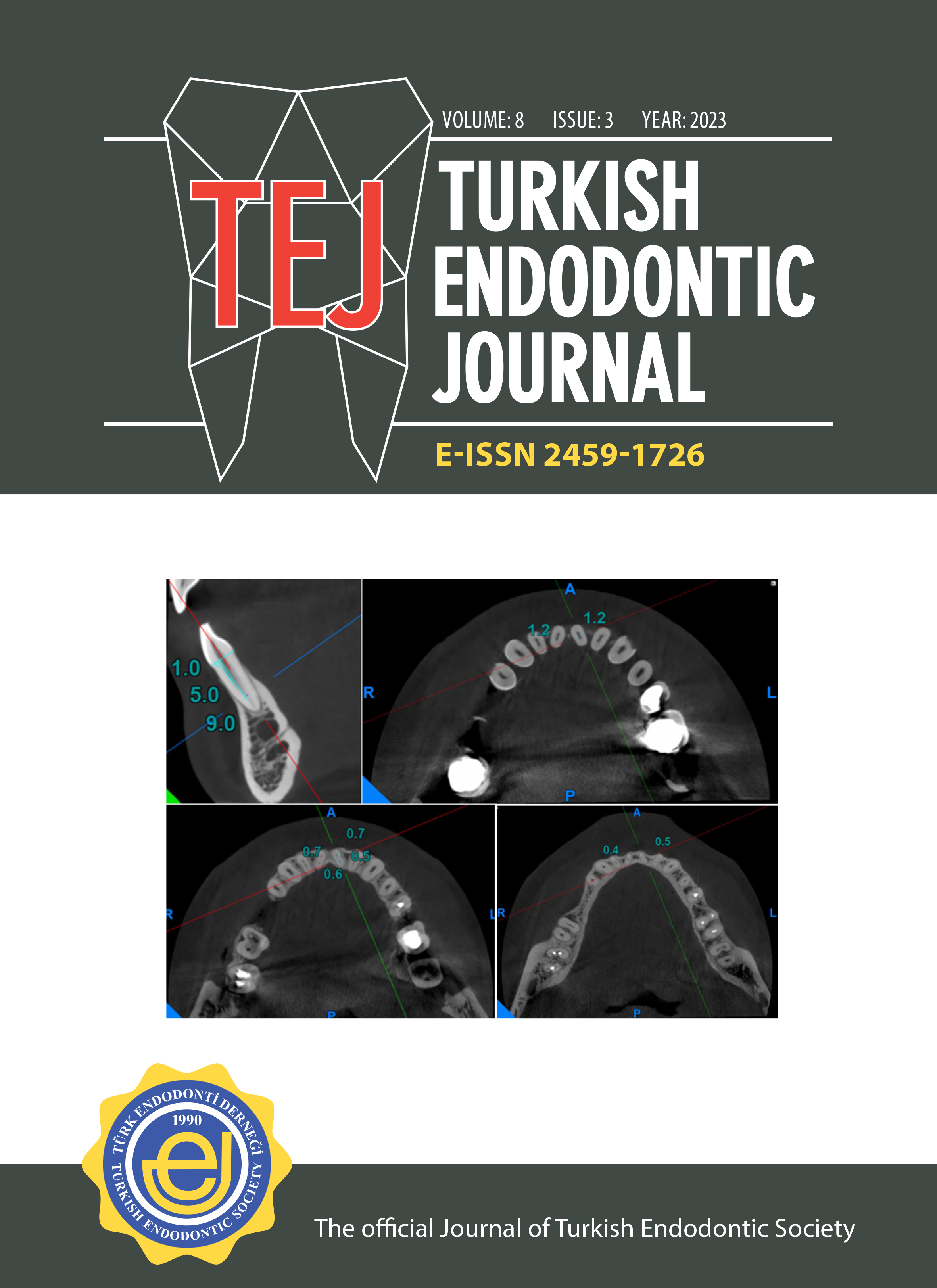Effect of decreased temperature on the tissue dissolution ability of sodium hypochlorite: An in vitro study
Ali Rıza Arslan, Burcu Pirimoğlu, Cangül KeskinDepartment of Endodontics, Ondokuz Mayıs University Faculty of Dentistry, Samsun, TürkiyePurpose: The present in vitro study aimed to compare tissue dissolution ability of 5% sodium hypochlorite solution at 3 different temperatures.
Methods: Thirty standardized fragments were prepared from bovine muscle tissue and randomly divided into 3 experimental groups (n=10) according to the temperature of the sodium hypochlorite. The tissue was immersed into a 1.5 mL test tube containing 20 mL of the sodium hypochlorite with the specific temperature and stored for 15 min. The solution was agitated with an ultrasonic tip working for 1 min. Then the solution was filtered and the tissue sample was dried. The weight loss of the tissue was measured as a dissolved tissue by the sodium hypochlorite. One-way analysis of variance was used to compare mean dissolved tissue weight between groups (p <.05).
Results: The highest dissolution values were found in 60°C sodium hypochlorite group achieving the significantly greater mass loss (p <.05), while no significant difference was found between the solutions applied at 20°C and 2.5°C (p >.05).
Conclusion: This in vitro study found that the application of sodium hypochlorite by cooling for cryotherapy did not alter its capacity for dissolving organic tissue compared to application at room temperature.
Corresponding Author: Ali Rıza Arslan, Türkiye
Manuscript Language: English
















